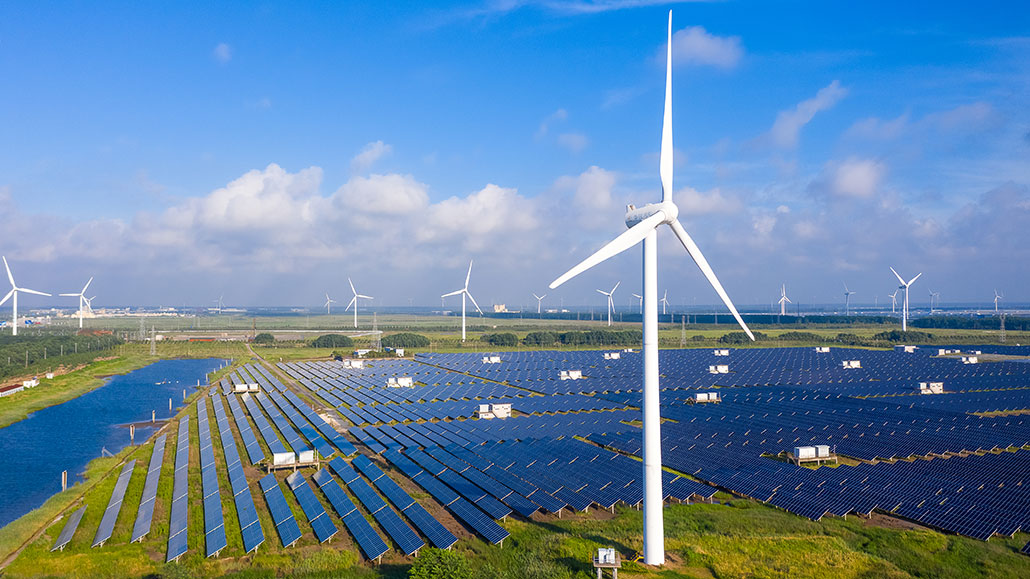Business
Renewable energy, with solar harvesting at the forefront, is widely recognized as the future of energy generation and consumption  By Sofie G
By Sofie G
 July 1st, 2023 Renewable energy, with solar harvesting at the forefront, is widely recognized as the future of energy generation and consumption. This shift towards renewables is driven by several compelling reasons, including the urgent need to combat climate change, the environmental benefits of solar energy, its vast potential for scalability, and the economic advantages it offers. This essay will explore these factors in detail, highlighting why solar harvesting, in particular, holds immense promise for a sustainable and prosperous future.
July 1st, 2023 Renewable energy, with solar harvesting at the forefront, is widely recognized as the future of energy generation and consumption. This shift towards renewables is driven by several compelling reasons, including the urgent need to combat climate change, the environmental benefits of solar energy, its vast potential for scalability, and the economic advantages it offers. This essay will explore these factors in detail, highlighting why solar harvesting, in particular, holds immense promise for a sustainable and prosperous future. 
1. Climate Change Mitigation:
The primary driver behind the transition to renewable energy, including solar harvesting, is the urgent need to mitigate climate change. Solar energy is a clean, carbon-neutral source of power that generates electricity without releasing greenhouse gas emissions. By reducing reliance on fossil fuels, which are major contributors to global warming, solar energy helps combat climate change and reduce the carbon footprint of energy production.
2. Environmental Benefits:
Solar harvesting offers significant environmental advantages over traditional energy sources. Unlike fossil fuel-based power plants, solar panels do not produce air pollutants or harmful emissions that contribute to air pollution, acid rain, or respiratory diseases. Moreover, solar energy does not require water for operation, unlike many other energy generation methods, conserving this valuable resource. By embracing solar harvesting, we can protect ecosystems, preserve biodiversity, and minimize the environmental impact associated with energy production.
3. Scalability and Distributed Generation:
One of the key advantages of solar harvesting is its scalability and the ability to implement it at various scales. Solar panels can be installed on rooftops, integrated into buildings, or deployed in large-scale solar farms. This flexibility allows for distributed generation, where energy is generated closer to the point of consumption, reducing transmission losses and the need for extensive grid infrastructure. Solar energy can be harnessed both in urban and rural areas, empowering communities and providing access to affordable, reliable, and sustainable energy.
4. Technological Advancements and Cost Reductions:
The rapid advancements in solar technology have significantly reduced the cost of solar panels and increased their efficiency. Over the years, research and development efforts have led to innovations such as thin-film solar cells, concentrating solar power systems, and solar storage technologies, enhancing the overall performance and cost-effectiveness of solar harvesting. As a result, solar energy has become increasingly competitive with conventional energy sources, and the cost of solar installations continues to decline, making it an economically viable option for widespread adoption.
5. Job Creation and Economic Opportunities:
The transition to solar energy presents significant economic opportunities and job creation potential. The renewable energy sector, including solar harvesting, has seen substantial growth, attracting investment and creating jobs in manufacturing, installation, maintenance, and research and development. As solar projects expand, new employment opportunities arise, fostering economic growth, and supporting local communities. Furthermore, the deployment of solar energy systems can contribute to energy independence, reduce reliance on imported fossil fuels, and enhance energy security.
6. Energy Access and Equity:
Solar harvesting has the potential to address energy poverty and promote energy access in underserved regions. In many developing countries, communities lack access to reliable electricity grids. Solar energy can bridge this gap by providing decentralized and off-grid solutions, enabling rural and remote areas to access electricity for lighting, education, healthcare, and economic activities. By promoting energy equity, solar harvesting empowers individuals and communities, contributing to socio-economic development and poverty alleviation.
In conclusion, renewable energy, particularly solar harvesting, is the future of energy generation and consumption. Its ability to mitigate climate change, provide environmental benefits, scalability, technological advancements, cost reductions, job creation, and energy access make it a compelling and sustainable alternative to fossil fuels. Embracing solar energy is not only crucial for a cleaner and healthier planet but also presents tremendous economic opportunities and social benefits. By harnessing the power of the sun, we can shape a more sustainable and prosperous
Facebook
WhatsApp

 By Sofie G
By Sofie G  July 1st, 2023
July 1st, 2023 